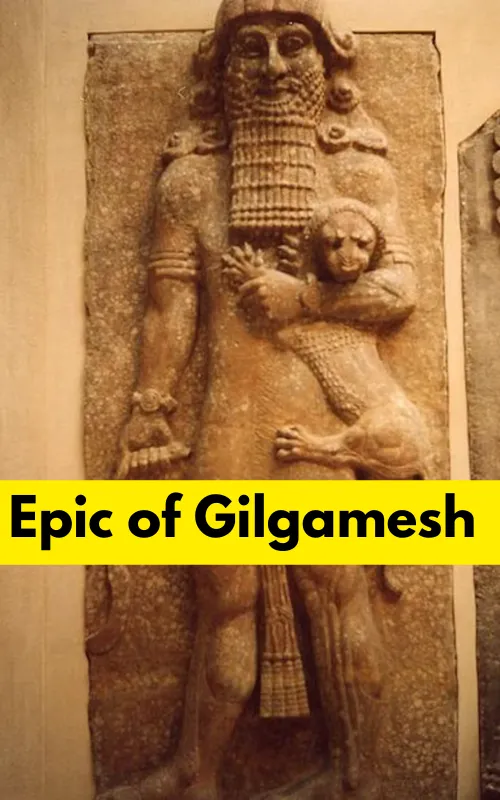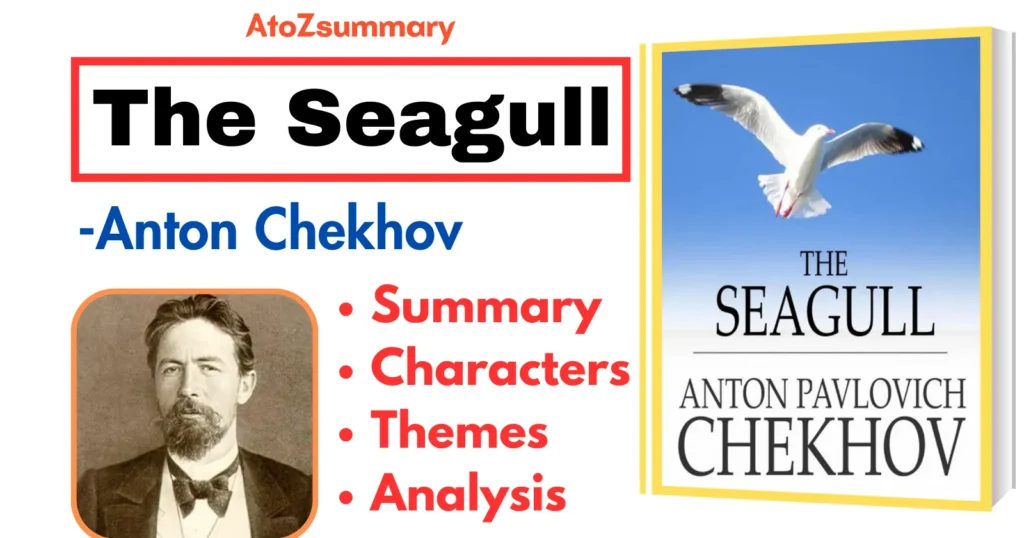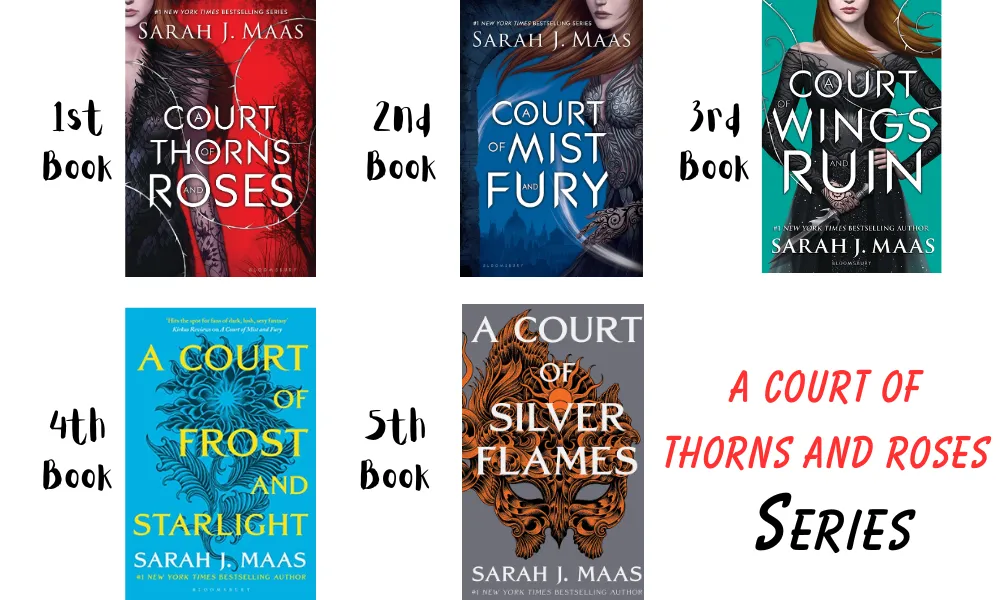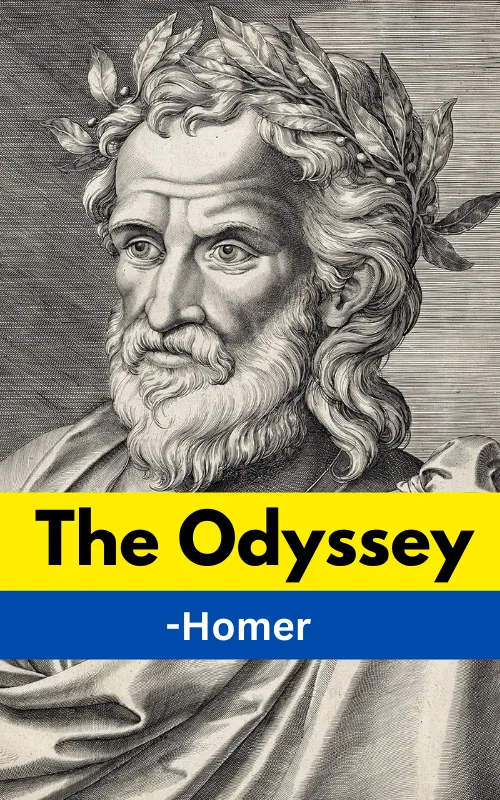About Poem: Epic of Gilgamesh
| Poem detail | Epic of Gilgamesh |
|---|---|
| Author | Unknown, often attributed to Sin-leqi-unninni |
| Date written | c. 2100 BCE |
| Date published | c. 1200 BCE |
| Type of poem | Epic poem |
| Key themes | Friendship, mortality, the search for meaning |
| Literary techniques | Epic meter, simile, metaphor, personification |
| Speaker | Various characters in the poem, including Gilgamesh, Enkidu, and Shamash |
| Subject | The life and adventures of Gilgamesh, a legendary Sumerian king |
| Setting | Mesopotamia, c. 2700 BCE |
| Tone | Varies, depending on the episode of the poem |
| Structure | 12 tablets, divided into three parts |
Themes: Epic of Gilgamesh
The themes of the “Epic of Gilgamesh” are:
- Friendship ➤ It explores the deep bond of friendship between Gilgamesh and Enkidu.
- Mortality ➤ Addresses the human fear of death and the quest for immortality.
- Heroism ➤ Focuses on the heroic journey of Gilgamesh and his quest for wisdom and personal growth.
- Divine Intervention ➤ Involves interactions with gods and the idea of divine influence on human lives.
Characters: Epic of Gilgamesh
The charactersof the “Epic of Gilgamesh” are:
- Gilgamesh ➤ The protagonist, a Sumerian king.
- Enkidu ➤ A wild man created by the gods.
- Shamhat ➤ A temple prostitute who civilizes Enkidu.
- Humbaba ➤ The guardian of the Cedar Forest.
- Ishtar ➤ The goddess of love and war.
- Utnapishtim ➤ A survivor of the Great Flood.
Epic of Gilgamesh Summary & Analysis
The “Epic of Gilgamesh” is an ancient Mesopotamian poem considered one of the earliest known works of literature, with origins dating back to around 2100 BCE. Comprising twelve tablets, this epic tells the story of Gilgamesh, the historical King of Uruk, who embarks on a quest for immortality. Here’s a detailed stanza-wise summary of the epic:
Tablet I
The epic begins by introducing Gilgamesh, a proud and powerful king, two-thirds divine and one-third human. His oppressive rule leads the people of Uruk to implore the gods for help. In response, the gods create Enkidu, a wild man, to challenge Gilgamesh. After a fierce battle, Enkidu and Gilgamesh become friends.
Tablet II
Gilgamesh and Enkidu decide to embark on a great adventure to the Cedar Forest to kill the monstrous Humbaba. Their journey takes them through various trials, demonstrating Gilgamesh’s superhuman strength and Enkidu’s newfound humanity.
Tablet III
Upon reaching the Cedar Forest, they engage in a fierce battle with Humbaba and ultimately defeat him. The gods are angered by their actions, particularly the god Enlil, who had appointed Humbaba as the forest’s guardian.
Tablet IV
Ishtar, the goddess of love and fertility, proposes marriage to Gilgamesh, but he rejects her, citing her history of mistreating her past lovers. In retaliation, Ishtar sends the Bull of Heaven to destroy Uruk. Gilgamesh and Enkidu defeat the bull, but Enkidu falls ill as a consequence of the gods’ anger.
Tablet V
Enkidu’s illness worsens, and he eventually dies. Gilgamesh is heartbroken and terrified by the idea of death. He embarks on a new quest, this time to seek the secret of eternal life from the immortal flood survivor, Utnapishtim.
Tablet VI
Gilgamesh arrives at the mountains and meets Siduri, a goddess who advises him to enjoy life and not seek immortality. Despite this advice, Gilgamesh presses on, reaching the shores of the Waters of Death.
Tablet VII
In his journey, Gilgamesh encounters a boatman named Urshanabi, who agrees to ferry him across the Waters of Death to meet Utnapishtim, the only human to have survived a great flood.
Tablet VIII
Gilgamesh reaches Utnapishtim and his wife, who tell him the story of the flood and how the gods granted them immortality. However, they explain that immortality is a gift from the gods and cannot be obtained by mortals.
Tablet IX
Utnapishtim challenges Gilgamesh to stay awake for a week, but he fails. Utnapishtim’s wife then reveals a plant that can grant youth, and Gilgamesh retrieves it from the bottom of the sea.
Tablet X
On his way back to Uruk, Gilgamesh stops at a spring to bathe. While he’s bathing, a serpent steals the rejuvenating plant, leaving Gilgamesh to return to Uruk with nothing but his memories.
Tablet XI
Gilgamesh returns to Uruk, having realized that immortality is unattainable. He looks upon the city’s walls and reflects on the importance of leaving a legacy through one’s deeds and the memory of future generations.
Tablet XII
The epic concludes with Gilgamesh coming to terms with his mortality and accepting the cyclical nature of life and death. He now finds solace in the city of Uruk, knowing that his legacy will endure through the story of his adventures.
FAQs: Epic of Gilgamesh
What is the biggest lesson of Gilgamesh?
The biggest lesson of Gilgamesh is that humans are mortal and that we should cherish the time we have.
Why is the poem of Gilgamesh so famous?
The poem of Gilgamesh is so famous because it is one of the oldest surviving works of literature in the world and it explores timeless and universal themes such as friendship, mortality, and the search for meaning.
Why reading Epic of Gilgamesh is relevant today?
Reading the Epic of Gilgamesh is relevant today because it explores universal themes like friendship, the fear of death, and the quest for meaning in life that still resonate with people.
Is The Epic of Gilgamesh hard to read?
The poem is written in a style that is very different from modern literature, and it can be challenging to understand the meaning of some of the passages.











